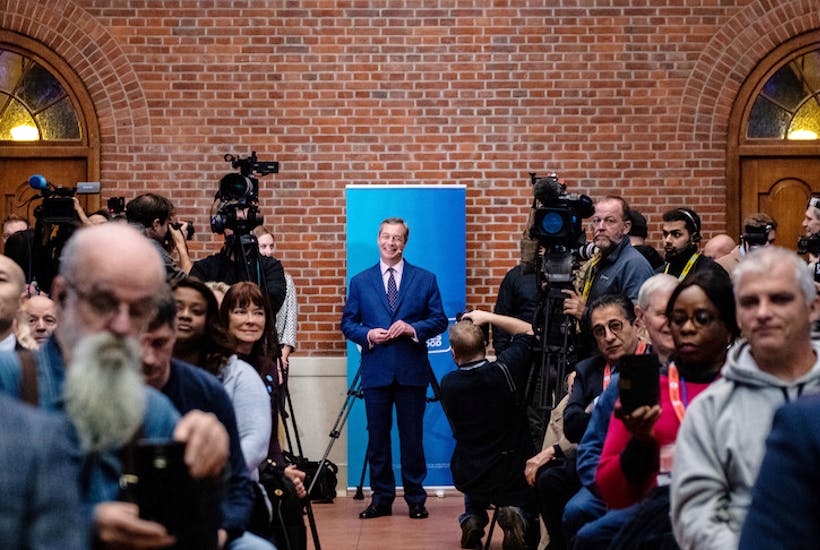In Britain, the last YouGov constituency-level poll showed a significant closing of the gap between Labour and the Conservatives, with the projected Tory majority falling from 68 seats two weeks ago to 28 seats now — and with a margin of error which could take the country well into hung parliament territory. The interpretation being put on this is that while the Conservatives have hit a ceiling, Labour continues to draw tactical voters away from the Lib Dems. But it is worse than that for the Tories. In spite of appeals to Brexit voters to vote tactically, in some places votes are beginning to drain away in the other direction, from the Conservatives to the Brexit party.
Nationally, there is no Brexit party surge — Nigel Farage’s party is stuck at around three percent. But it is a different story in some Labour-held seats in the North which the Tories have been targeting relentlessly. In the last YouGov constituency-level poll two weeks ago, the Brexit party had a share of the vote in excess of 20 percent in four constituencies: Barnsley East, Barnsley Central, Hartlepool and Hull East. Now, they have a 20 percent share of the vote in eight constituencies: the above plus Doncaster North, Easington, South Shields and Wigan. In the two Barnsley seats, they are now in second place with 30 percent and 26 percent of the vote respectively; two weeks ago they had no second places.
What has happened to the Tory strategy of peeling votes away from the Brexit party? For one thing, Nigel Farage has performed well in two TV debates — debates in which Boris Johnson did not take part. On Monday night’s Question Time special with an audience of under 30s he easily outperformed a lackluster Robert Jenrick, who represented the Conservatives. It won’t have impressed everyone, obviously, but for diehard Brexiteers it was a reminder that Nigel Farage is far more committed to leaving the EU than many Conservative MPs are, and is an impressive, high-energy debater on all kinds of issues. Boris, too, has stumbled this week on the question of goods traveling between Great Britain and Northern Ireland under his Brexit deal. He insists that no checks will be necessary, while Treasury documents appear to show otherwise.
Moreover, Boris is always going to be hampered in traditionally working-class areas by virtue of being a Tory. It takes an awful lot for, say, a former miner in Barnsley to contemplate voting Conservative. Boris has eaten into the working-class Labour vote more than anyone could have imagined just a couple of years ago, but there are limits. With the Brexit party mounting a credible challenge in some of these areas, the argument for tactical voting becomes less strong. If you are a Leaver living in Barnsley, why not express your desire for the full-fat version of Brexit?
The Brexit party is still not in a position where it is likely to win a single seat, but it could all-too-easily help deny the Conservatives a majority. If we wake up on Friday morning to a hung parliament there will be no shortage of recriminations. Many Tories will ask themselves: actually, might it have been a good idea, after all, to have entered some kind of informal pact with the Brexit party which allowed it a free run in a handful of seats like Barnsley in return for the party standing aside in Labour constituencies where the Conservatives are stronger?
This article was originally published on The Spectator’s UK website.



















